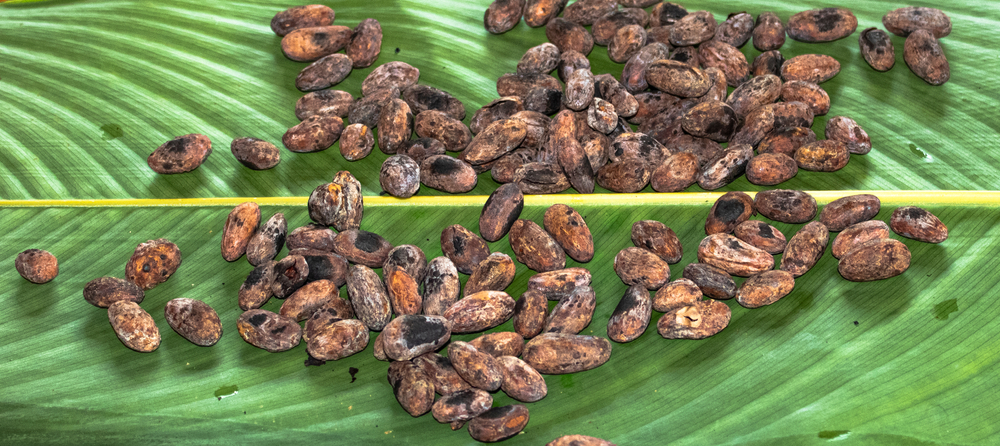
Chocolate
The cultivation of cocoa goes back to about 3000 BC. The Mayan and Aztec peoples were the first civilizations to use cocoas beans to prepare a flavoured energy drink produced from cocoa beans. In the past, chocolate was destinated to rich social classes, and indeed it was called “Food of the Gods” for its delicacy. This food came in Europe in the 1502 thanks to Hernan Cortes, and it became a medical remedy to “cure” every disease.
Nowadays, the procedure for processing chocolate is quite simple, starting from the beans, the seeds, contained in the fruit of cocoa plant. The production phases are:
- Fermentation: from two to ten days they are processed in pools or pits dug into the ground. Here the aroma and the characteristic colour are developed;
- Drying: the cocoa beans are dried in special cabinets, gaining a brighter colour and a less astringent taste;
- Roasting: to 120-140 degrees to roast cocoas beans and to facilitate pressing and grinding;
- Milling;
- Blending;
- Refining: the cocoas mass obtained is refined up to 18-20 thousandths of a millimetre;
- Concage: The fluid mass is held at a temperature of 80 degrees in special basins under constant mechanical agitation for up to 72 hours. It is at this stage that chocolate acquires its characteristic flavour;
- Temperament: the semi-finished product is brought to temperatures ranging from 45-50 degrees to 30 degrees. The aim at this stage is to stabilize the composition of the cocoa butter crystals, so that the gloss of the chocolate remains intact over time.
The 70% of the global production of cocoas beans comes from four African countries: Ivory Coast, Ghana, Nigeria, and Cameroon.
The medium consumption of chocolate in Italy is about from 4 to 11 kg per year (per family).
The problematics linked to the cocoa and chocolate production, now, regard especially the wild deforestation to increase the cultivation of cocoa plants: Moreover, the labour conditions of the farmers, food safety, energetic efficiency of productive processes, and the traceability of the cocoa-based products. The criticism of such a strategic sector for international trade are part of the challenges to be faced in order to achieve the sustainable development goals set out in the Green Deal and Agenda 2030.
Process and Product Innovation
The shift to the Industry 4.0 is a moment of deep change and innovation capable to disrupt all the sectors.
The industry 4.0 is considered as a new Industrial Revolution that appears to be even more disruptive of the previous ones. It is seen as such because it is born from the convergence of the IT and OT technologies to create a digit...
Supply chains involved:
Plant-based Beverages Coffee Cereals Chocolate Canned Foods Beer Dairy Products Nuts Food Supplements and Nutraceuticals Milk Plant oils Fruit and Vegetables Pasta Meat Baking products Sweet products Rice Cold Cuts and Cured Meats Winery